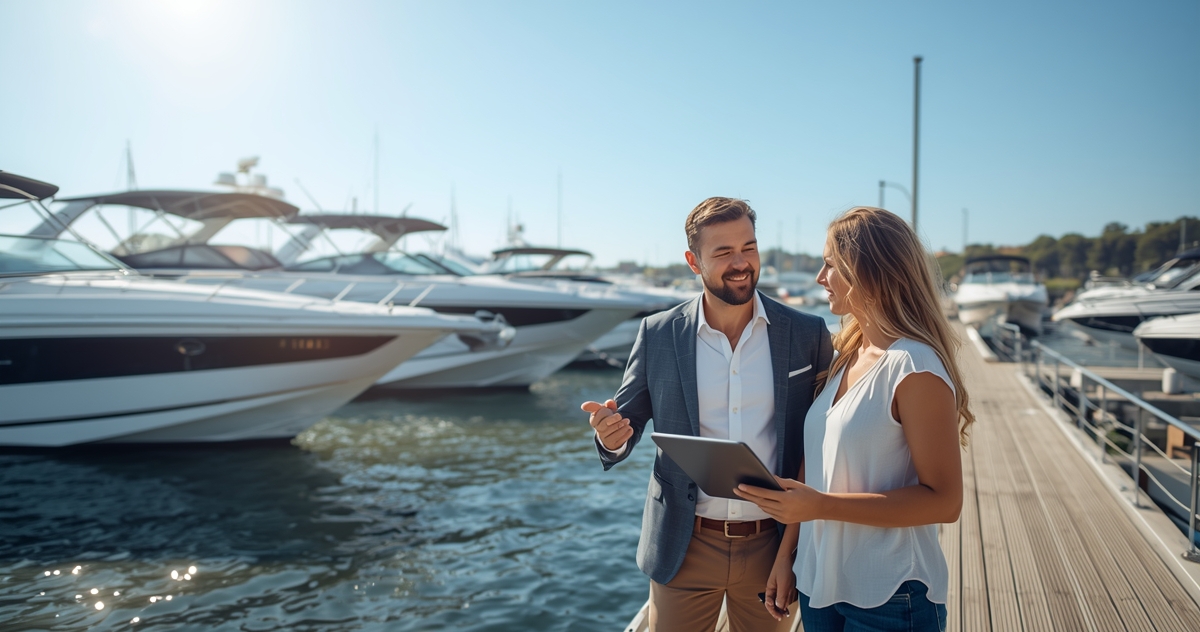
The marine industry has seen remarkable growth over the past few years, with more people embracing the boating lifestyle for recreation and adventure. According to the National Marine Manufacturers Association (NMMA), boat sales in the U.S. surpassed 300,000 units in 2023, highlighting a strong demand despite economic shifts. But with rising interest comes rising competition. For boat dealers, that means simply having a website is no longer enough. To stand out online, you need an effective SEO strategy that helps potential buyers find you before your competitors.
Search engine optimization (SEO) remains one of the most powerful tools for driving qualified traffic and building trust in your brand. Whether you specialize in new boats, pre-owned vessels, or marine services, mastering SEO can make the difference between blending in and becoming a go-to dealer in your area.
Here’s how to build and execute SEO strategies that help boat dealers attract attention, generate leads, and convert browsers into loyal customers.
For most boat dealers, customers come from nearby coastal areas, lakes, or marinas. Local SEO ensures that when someone searches “boat dealers near me” or “used boats in [city name],” your dealership appears at the top of results.
Here’s how to optimize your local presence:
Local SEO connects you directly with nearby buyers who are ready to make a purchase, increasing foot traffic and inquiries.
A visually appealing website is important, but if it’s slow, confusing, or poorly optimized for mobile, visitors will leave before they explore your listings. Search engines also prioritize websites that deliver strong user experiences.
Focus on these key elements:
User-friendly websites not only enhance SEO rankings but also build credibility with potential customers.
Search engines reward websites that consistently publish useful, original content. For boat dealers, this means creating content that answers questions, educates buyers, and positions your brand as an industry expert.
Here are some ideas to start with:
Integrate your target keywords naturally within blog posts, meta descriptions, and headers to boost visibility. For example, phrases like “marine marketing,” “boat dealership SEO,” or “digital marketing for boat dealers” can attract both search engines and qualified buyers.
The goal is not to stuff keywords but to provide genuinely helpful information that keeps readers coming back for more.
On-page SEO involves optimizing the elements of your website that affect how search engines understand and rank your content. For boat dealers, this step is critical because it helps your listings and services appear for the right search queries.
Key tactics include:
Even small improvements in these areas can lead to higher search rankings and more qualified traffic.
Backlinks—links from other reputable websites pointing to yours—remain one of the strongest signals of authority for search engines. However, not all backlinks are created equal.
Boat dealers should focus on earning links from credible, industry-related sources such as:
You can also earn backlinks by publishing unique data or insights, like “Top 10 Boating Destinations in [Region]” or “2025 Trends in Recreational Boating.” High-quality, shareable content naturally attracts links over time.
While social media doesn’t directly affect SEO rankings, it indirectly supports visibility and brand awareness. Sharing your listings, videos, and blog posts on platforms like Facebook, Instagram, and YouTube increases engagement and drives more traffic to your site.
Consider these strategies:
Active social media engagement signals to search engines that your brand is relevant and trusted, which can enhance organic performance.
SEO is an ongoing process. Monitoring your analytics ensures you know what’s working and where you can improve.
Track these essential metrics:
Tools like Google Analytics, Google Search Console, and SEMrush can help you gather valuable insights. Use the data to refine your content strategy, update underperforming pages, and identify new opportunities.
Behind the scenes, technical SEO ensures that your website is easy for search engines to crawl and index. Without it, even great content might not get the visibility it deserves.
Here’s what to focus on:
Keeping your website technically sound builds a strong foundation for all other SEO efforts.
Organic SEO delivers long-term results, but combining it with targeted paid advertising can help accelerate growth. Running PPC campaigns for specific keywords or promotions can boost visibility instantly while your organic strategy develops.
For instance, you might run Google Ads for terms like “boats for sale near me” or “pontoon boat dealers” while building authority through content and backlinks. This blended approach ensures your brand appears in multiple places across search results, increasing trust and click-through rates.
SEO for boat dealers requires both industry knowledge and digital expertise. Working with a digital marketing company experienced in marine SEO can help you stay ahead of changing algorithms, identify profitable keywords, and manage consistent growth.
Agencies like Harpoon Marketing specialize in helping marine businesses expand their online reach through customized SEO strategies, website optimization, and content development. A trusted partner can save you time, reduce guesswork, and maximize your marketing ROI.
In a competitive marine market, visibility is everything. A strong SEO strategy allows boat dealers to connect with serious buyers, build trust, and stand out online. By optimizing your website, creating engaging content, focusing on local search, and tracking your results, you can steadily grow your digital presence and sales.
Whether you’re a small marina or a full-scale dealership, investing in SEO today sets the foundation for long-term success tomorrow.
Ready to take your marine business to the next level? Visit Harpoon Marketing to learn how tailored SEO strategies can help your dealership rise above the competition.

